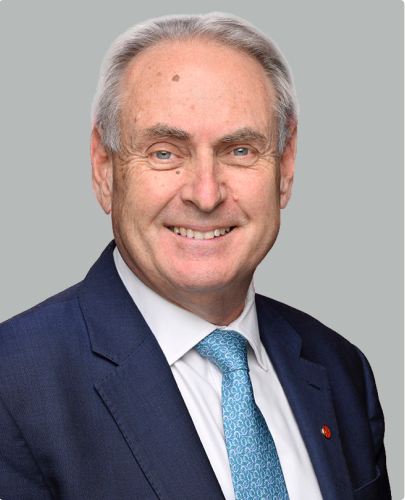Radio interview - ABC AM
SENATOR THE HON DON FARRELL
Minister for Trade and Tourism
Special Minister of State
Sabra Lane: Senator Don Farrell is the Federal Special Minister of State with oversight of the Australian Electoral Commission and Parliamentary Services. He spoke with me earlier. Don Farrell, thanks for joining us.
Special Minister of State Don Farrell: Nice to be with you, Sabra.
Sabra Lane: The McKinnon survey involved 4,000 Australians and it shows that people are supportive and engaged in our democracy but there are worrying signs. Nearly a quarter of Australians say democracy is not preferable and nearly 10 per cent say violence can be justified for a political cause. Does that worry you?
Special Minister of State: In terms of the support for democracy, I look at it the other way, that more than 76 per cent of Australians support democracy. And again, on the other issue, of course, overwhelmingly Australians, overwhelmingly they're opposed to violence. That 10 per cent figure, I agree with you, is a worrying figure. But overwhelmingly, Australians are opposed to violence in the political system.
Sabra Lane: But still, one in four say that democracy is not preferable.
Special Minister of State: You've really got to look at the total number, and I think the total number does give us some cause for confidence. We're trying to do a range of things that improve the support for our democracy. You might recall, Sabra, during the last term of the government, we put through a range of transparency measures that now mean that when you go in to vote at the next election, you'll know exactly who's supporting the candidate that you might be thinking about voting for. So, for the first time in the history of a Federal Government in Australia, we'll have real-time disclosures of donations. We've also reduced the figure that you now have to disclose. Previously it was $17,000, now it's $5,000. So, any donation above that level must now be fully disclosed in advance of the election. The other thing we've done is to put downward pressure on the cost of elections by limiting the amount of money people can donate to a candidate and limiting the amount of money that people can spend on a campaign. So, I think a combination of that figure of 76 per cent, plus the things that we're doing before the next election, I think are an indication that we should be reasonably positive about support for democracy in this country.
Sabra Lane: What about 62 per cent said they believe corruption is a problem in federal politics with only 14 per cent disagreeing. And 56 per cent feel that politicians really don't understand or represent them.
Special Minister of State: Yeah, look, those figures are uncomfortable, I guess. Again, we tried to do something in the last parliament by introducing a National Anti-Corruption Commission and I think that's doing its work, and is working well.
Sabra Lane: Is it? Because some people pointed out very recently actually that it's been in operation for two years, it's got an annual budget of $60 million, it's had 5,000 referrals and not one major finding yet of corruption.
Special Minister of State: Well, that's a good sign, I would have said, if after that number of inquiries it hasn't discovered any corruption, it means that people have the opportunity of putting their claims for corruption forward and it being investigated and then if no charges are laid, well, that's an indication that the system is working. There is no corruption, and I say that's a good thing.
Sabra Lane: Have the traditional parties played a role here? Primary support has dropped for the major parties, traditional parties, markedly during the past 20 years. Voters say they're not being listened to, that inequality is growing, not narrowing. And they see Question Time, which is a narrow window on what happens in Parliament. But many voters think that's unacceptable and Parliament's not working for them.
Special Minister of State: Look, I think Question Time is one of the key features of our democracy. It's a way in which particularly the opposition parties and the crossbenchers get to question the government of the day about issues that are concerning them and concerning their constituents. A couple of weeks ago, I was in the chair when we had the longest Question Time in Australian parliamentary history. Let’s think, three and a half hours. No Question Time had gone longer than that. So, no, I actually think Question Time provides the community, ok, it's a narrow window, but it is a window where the Prime Minister has to turn up. That doesn't often happen in other countries, certainly not to the same extent. So, the Prime Minister has to be there. He's got to be there every day and answering questions. And I think that's a good part of our democracy. I would have thought that that should garner more support from the community.
Sabra Lane: Don Farrell, thanks for joining AM.
Special Minister of State: Nice talking with you, Sabra.
Minister's office: 02 6277 7420
